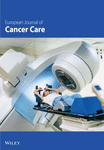Depression in cancer patients: a literature review
Abstract
It is estimated that 20–25% of cancer patients suffer often unrecognized and untreated long-term depression, a condition that can make life miserable. Symptoms can include: lack of sleep; loss of interest in life; anxiety; irritation; loss of concentration; and, in severe cases, thoughts of suicide; leading to an overall poor quality of life. Given that the majority of patients diagnosed with clinical depression can be effectively treated with one form of treatment or another (psychological, pharmacological or a combination) it is now important that health care professionals routinely assess and offer treatment for depression in cancer patients. Therefore, this article reviews the literature on depression caused by cancer and highlights practical ways in which health care workers can measure and subsequently treat depression using pharmacological and psychological approaches.




